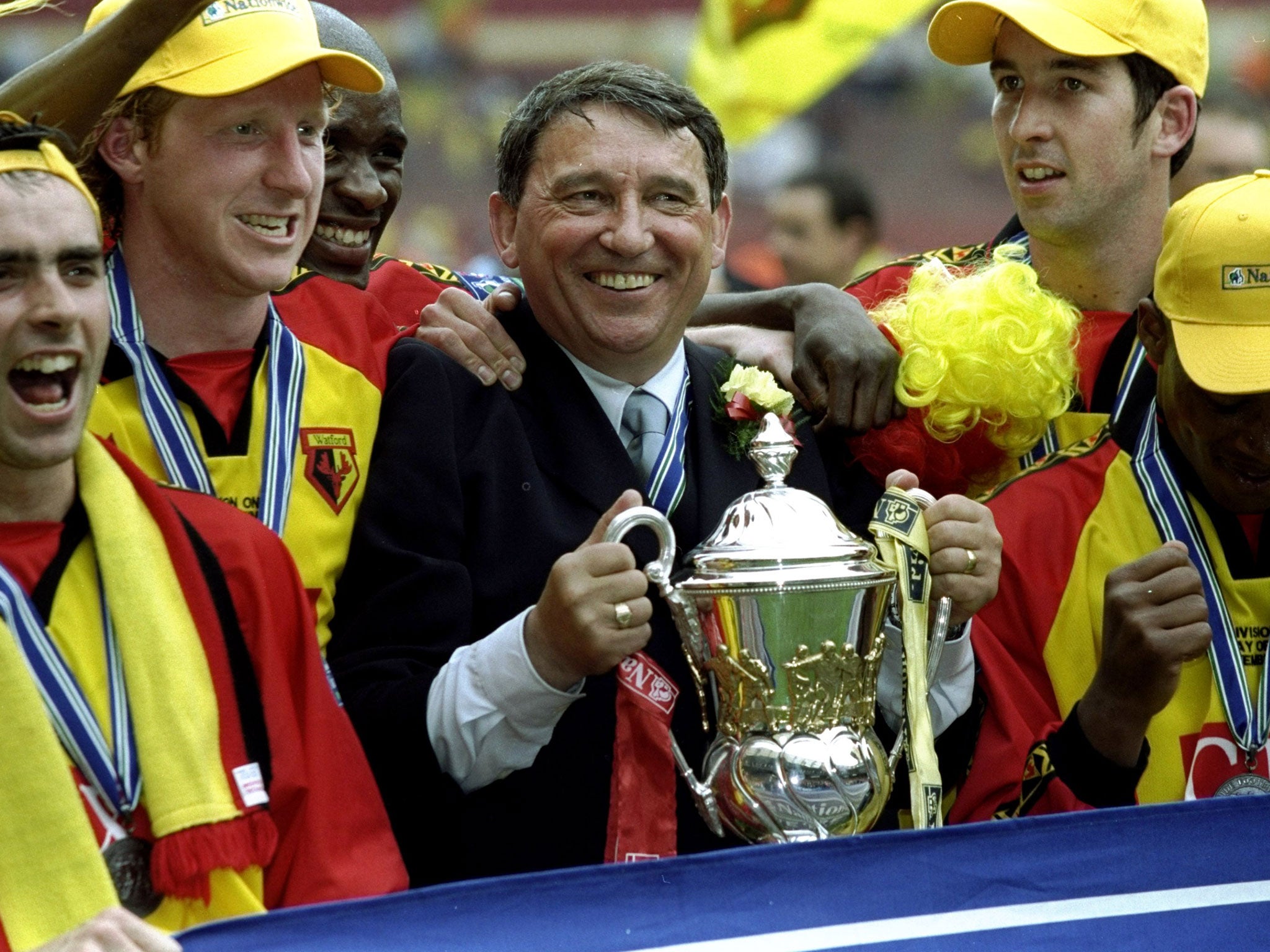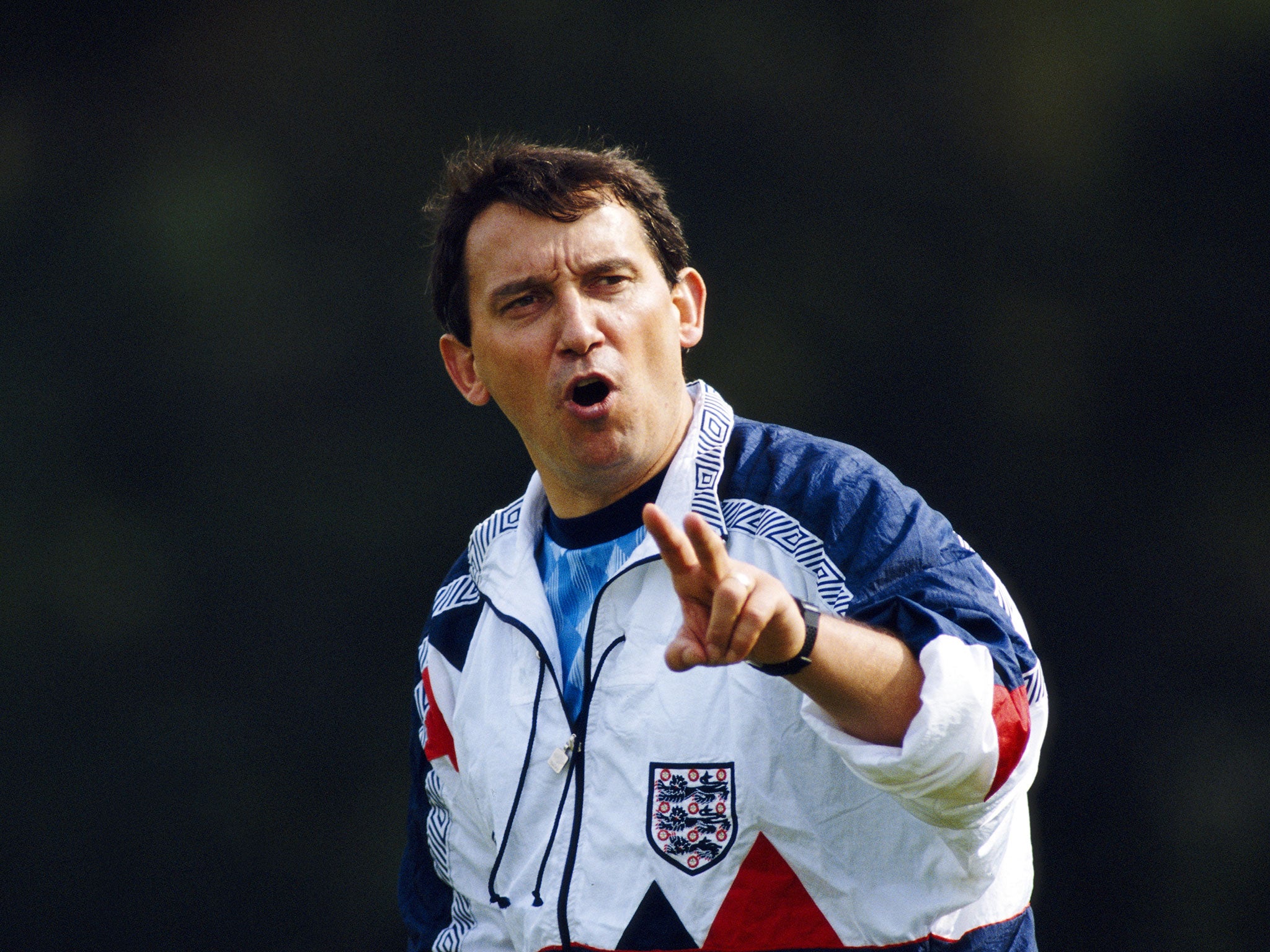Graham Taylor flourished at Watford and Aston Villa - his legacy will live long at these two clubs
Taylor will long be remembered for his successful stints with both the Hornets and Villa, despite his forgettable England career

Your support helps us to tell the story
From reproductive rights to climate change to Big Tech, The Independent is on the ground when the story is developing. Whether it's investigating the financials of Elon Musk's pro-Trump PAC or producing our latest documentary, 'The A Word', which shines a light on the American women fighting for reproductive rights, we know how important it is to parse out the facts from the messaging.
At such a critical moment in US history, we need reporters on the ground. Your donation allows us to keep sending journalists to speak to both sides of the story.
The Independent is trusted by Americans across the entire political spectrum. And unlike many other quality news outlets, we choose not to lock Americans out of our reporting and analysis with paywalls. We believe quality journalism should be available to everyone, paid for by those who can afford it.
Your support makes all the difference.Graham Taylor was hardly the first manager, and will not be the last, to find the leap from club to international football too wide a gap. Had he, like Steve McClaren or Roy Hodgson, never accepted the call that few English football men have ever been able to resist, his reputation would have been even higher.
But try telling them in Hertfordshire that he was a failure. Some 6,000 Watford supporters sit every week in the Graham Taylor Stand and those among them who followed the incredible journey from the Fourth Division in 1977 to runners-up behind Liverpool in 1983, then an FA Cup final and European football would happily subscribe to a statue.
There are pretty good memories too in Lincolnshire. That was where he began in management with Lincoln City, aged just 28, the youngest boss and youngest qualified FA coach in the country. It was in the days when lower division directors were a little more patient; two mid-table seasons were allowed before the narrowest of promotion misses on goal average and then, in 1975-6, Taylor's Fourth Division championship-winning team scored 111 goals and finished with the modern equivalent of 106 points.
West Bromwich Albion, a top six club in the top division, wanted him but Taylor was persuaded by the League's unlikeliest chairman, Reg Dwight, aka Elton John, to step back down into Division Four with Watford. The brief was to take the little club into Europe but Taylor managed to keep a straight face and got them there in six years.
Like Wimbledon, who were just beginning to make their own way through the divisions, Watford unashamedly employed what was called direct-play by its advocates and long-ball football by its critics. The latter group, encompassing many of the country's most influential football writers, had taken little notice for a long while – even when as a mid-table Second Division side in 1980, they beat Lawrie McMenemy's Southampton 7-1 in the Football League Cup, after losing the first leg 4-0.
Greater interest was aroused after promotion in 1982 was followed by the greatest campaign in the club's history, finishing second behind Liverpool to qualify for the Uefa Cup. A team in which wingers Nigel Callaghan and John Barnes supplied strikers Luther Blissett and 6ft 2in Ross Jenkins scored 150 league goals in two seasons.
They never touched such heights again but had four comfortable seasons in mid-table before Taylor decided upon a new challenge with Aston Villa, again stepping down a division. They went up and Watford were immediately relegated.
Similarly, when he left Villa to take the England job in 1990, they dropped from second to 17th. He was succeeding a national hero in Bobby Robson, however, and the Villain soon became a villain.

Although Norway under Egil Olsen made a great success of direct play at international level – ironically inflicting one of Taylor's worst defeats in Oslo – it is fair to say many England players did not enjoy it. The more technical players, coached at clubs like Liverpool, Arsenal and Tottenham, found it hard to accept that from the kick-off they should aim to put the ball into touch, rugby-style, as far into opposition territory as possible.
As ever, results defined perception. Failing to get out of the group at Euro '92 was no worse than under Robson four years earlier but Taylor did not help himself by daring to substitute Gary Lineker in the 2-1 defeat by host country Sweden. The Sun's headline’ SWEDES 2 TURNIPS 1’ was considered a tabloid gem, which many then felt to be taken too far when the vegetable was imposed next day on the head of a man now christened Graham Turnip.
Helpful to a fault with the media, he tended to talk himself into trouble at press conferences, even after becoming the first England manager to employ outside help in the form of a PR consultant. Hence the agreement to a documentary, originally known as An Impossible Job, which then took the title of a Taylor catchphrase, Do I Not Like That.
Broadcast by Channel 4 in 1994 after England had been knocked out of their World Cup qualifying group, it had graphic footage of him, after Holland's Ronald Koeman was allowed to stay on the pitch following a blatant professional foul, telling the linesman in remarkably controlled fashion: “You know we've been cheated don't you? At the end of the day I get the sack now.”

He did, of course, and it hurt. Many years later, in an interview for The Independent on Sunday his upset was still plain, above all that his beloved wife had become involved in the media recriminations.
Taylor had lost seven England matches out of 38. Choosing to go back into club football, he reached the play-offs with Wolves then returned happily to Watford, taking them back to the Premier League with consecutive promotions, and less successfully to Villa.
He finished his days in Kings Langley, Hertfordshire, nearest to the club where he will always be remembered most fondly.
Join our commenting forum
Join thought-provoking conversations, follow other Independent readers and see their replies
Comments